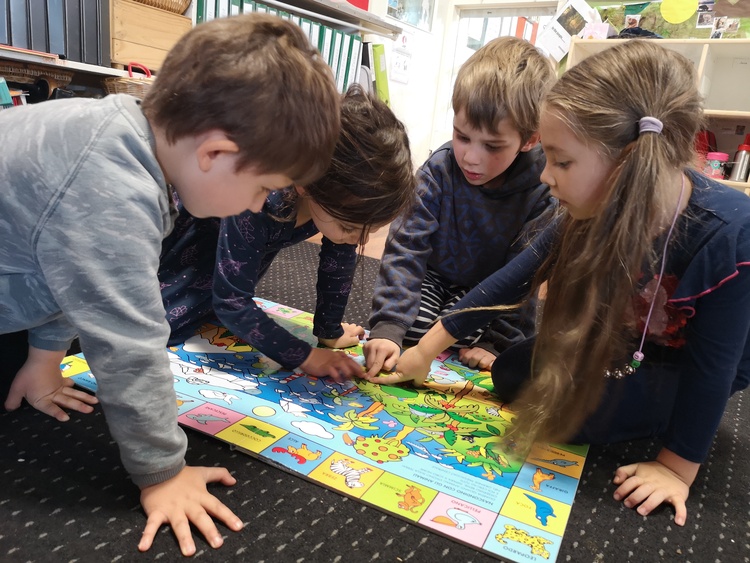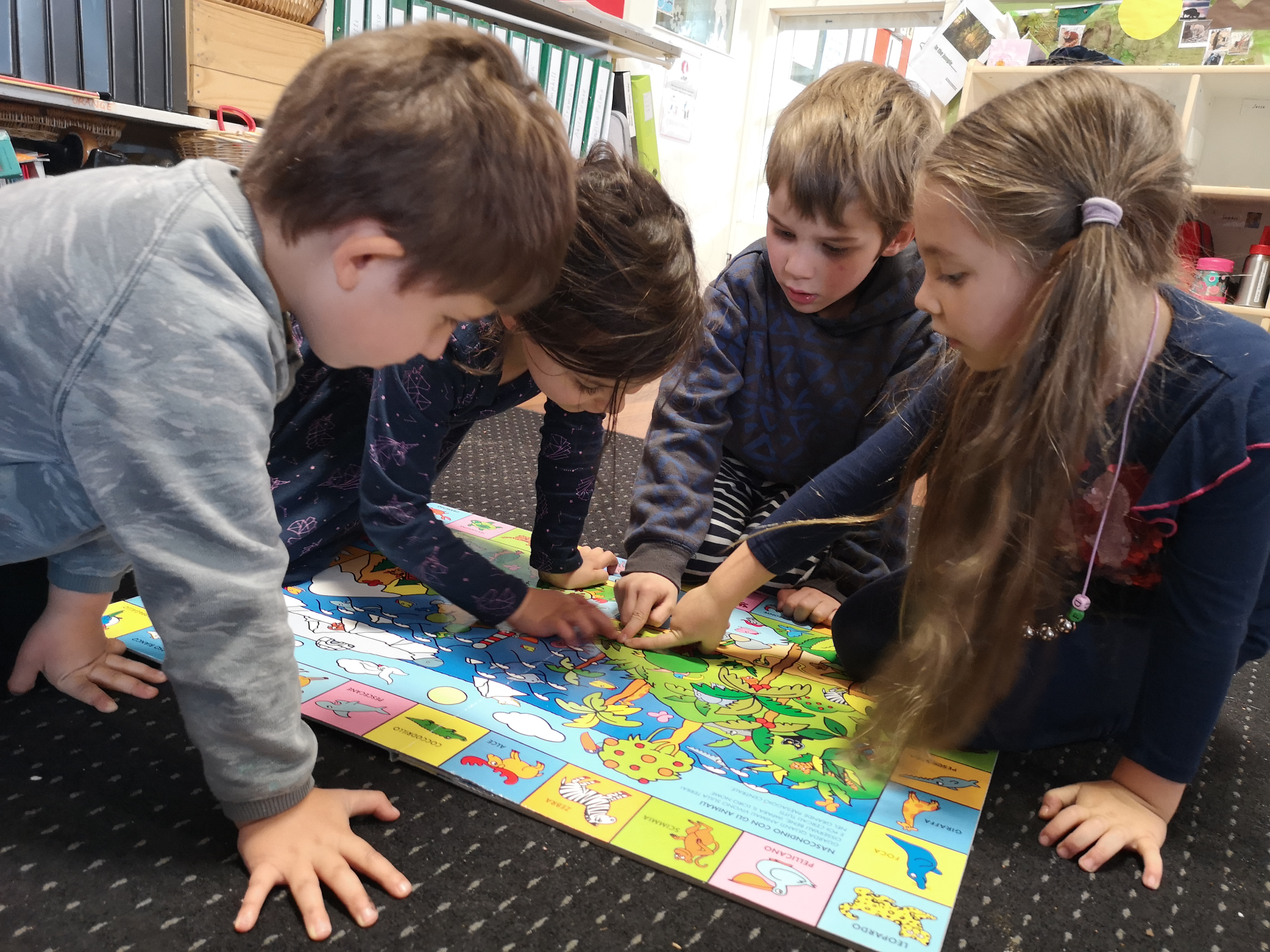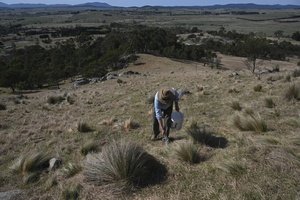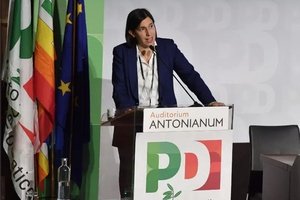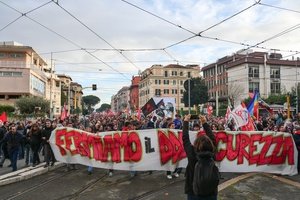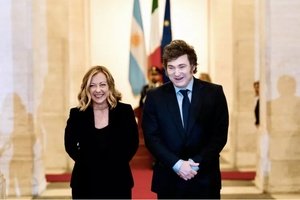One click on Google and you’ll find pages and pages of theories proven by academics and credible studies undertaken by researchers, as Matthew Absalom of The University of Melbourne highlighted a few weeks ago at Gladstone Park (article on page 4).
It seems that, slowly, state and federal institutions have got the message and are beginning to promote and support language studies from kindergarten.
North West Brunswick Kindergarten has been a pioneer in bilingual learning for more than two decades.
The kindergarten is one of a kind with its Italian immersion program for four-year-olds, launched in 1997 by Siobhan Hannah.
Recently, funding from the Department of Education and Training Victoria has seen the kindergarten become officially recognised as one of the 10 bilingual kindergartens in the state, along with nine other centres which offer programs in Chinese, Greek, French, Punjabi, Japanese, German and Auslan.
From Monday to Wednesday, for a total of 15 hours a week, children at the kindergarten play, learn and grow under the guidance of two qualified early learning teachers who are native Italian speakers.
At first glance, the kindergarten is a place of joy and enthusiasm which seems to be contagious.
Even the parents go out of their way to greet and, in some cases, exchange a few words in the bella lingua with the two Italian teachers, Paola Perosa and Alessandra Spanu.
This year, there are 14 children enrolled in the kindergarten’s Italian program, which has a capacity of 22 students.
The teachers explain that the children come from a range of backgrounds and are at different levels with their language.
In fact, Italian is not a prerequisite for enrolment and the kindergarten has an introduction program for three-year-olds which includes three hours of Italian per week.
The teachers present a program in line with ministerial requirements and incorporate the language into activities that are part of the curriculum; at this age, the curriculum is based on playing and gives children a certain amount of freedom.
Ideally, the class should be divided into small groups, matching children with similar language skills.
The approach is very flexible and can be adapted to meet the needs of each child – something which parents greatly appreciate, according to Carla Daniele, the mother of student, Sofia Z.
Italian is used as much as possible in class: from the Acknowledgement of Country at the beginning of the day to group activities.
Repetition and fun are the key words when it comes to achieving success with children in this age group.
And it also helps to use a little bit of tough love: requests to play outside or to eat are only accepted in Italian!
The children’s progress is tangible.
“Sofia occasionally speaks in Italian without being forced and she knows the basics like colours and numbers well ... She even teaches her little brother the ones she knows better,” Carla said.
“She loves coming home and singing the Italian songs she’s learnt.”
Carla is on the committee of the bilingual program, along with Chris Del Monaco, father to a little girl whose name is also Sofia.
Chris has also noticed a significant improvement in his daughter’s language skills.
“I have to say that her Italian was already good to begin with – much better than mine,” he said.
“But thanks to the program, she has developed the ability to use more complex grammar in the correct way, such as present conditional tense and reflexive verbs, allowing her to express her thoughts and emotions better.”
For Carla, one of the main reasons she chose to send her daughter to North West Brunswick Kindergarten was “the daily exposure to Italian under the care of native Italian speakers”.
“Sofia has been learning and speaking Italian since she was very little, so it’s natural for her to be immersed in the language,” Carla said.
However, children who come from families who don’t speak Italian have a different experience: they are supported and attended to the entire time, both when it comes to learning a new language and growing in general.
Children are not only immersed in the language, they are also introduced to Italian culture and traditions, through different flavours, customs and costumes which are familiar to some who have Italian grandparents or parents.
Regardless of their heritage, all children are exposed to an intercultural experience with great benefits.
“The program promotes an understanding and appreciation of diversity,” Chris said.
During the year, the children bake biscuits, learn how to make passata and celebrate the more popular Italian events.
They also participate in excursions in the area, visiting Brunswick North Primary School to meet students and “la signora” Bruna, while there are incursions with neighbouring schools like St Fidelis.
The kindergarten offers children the chance to expand their opportunities for development and social skills.
And thanks to the gift of a second language, they can do so with greater openness and discernment.
For more information, visit North West Brunswick Kindergarten’s website. To enrol, visit Moreland City Council’s website. Enrolments for next year are still open to children who are four years of age by April 30, 2020.

